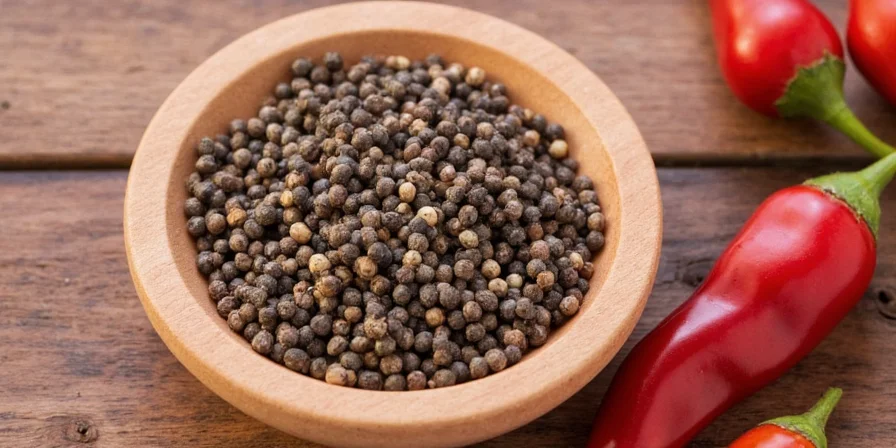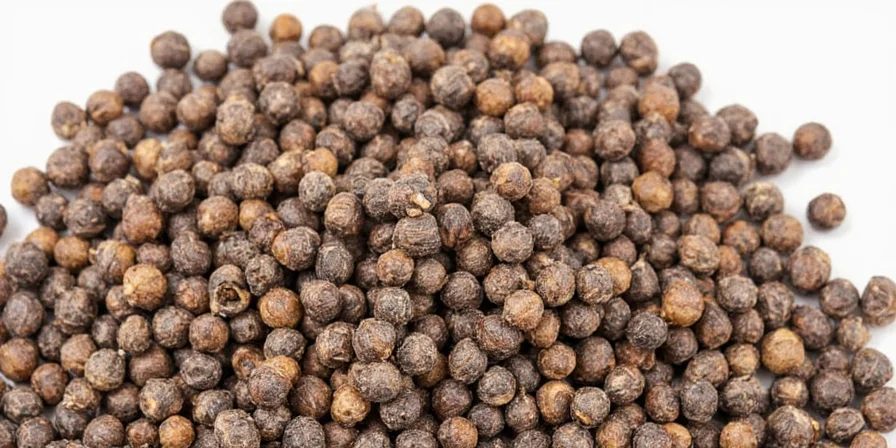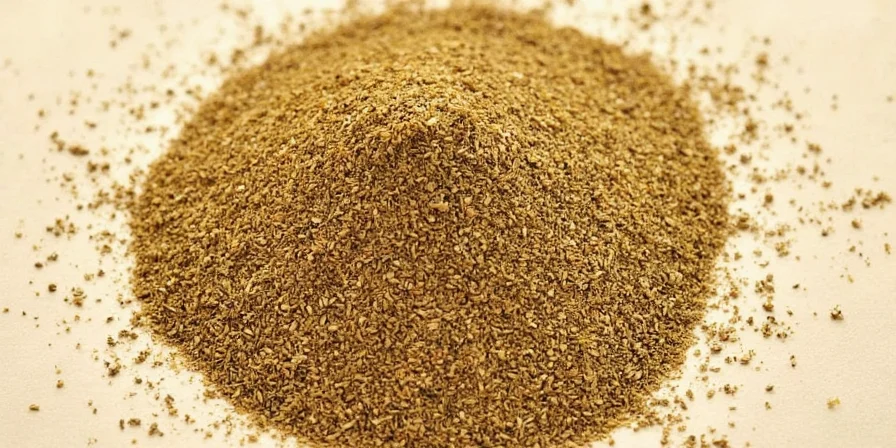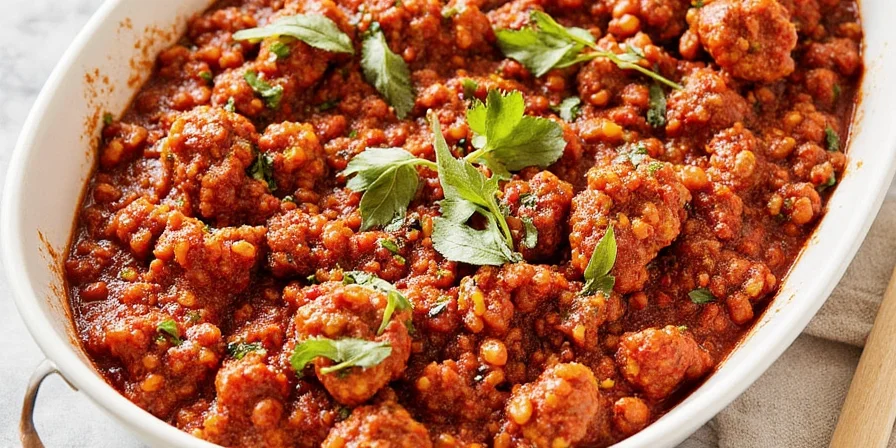Yes, peppercorns and black pepper are directly related but not identical. Peppercorns are the whole dried fruit of the Piper nigrum plant, while black pepper specifically refers to the ground form of black peppercorns. Understanding this distinction is crucial for home cooks seeking optimal flavor in their dishes - get it wrong and you could end up with unpleasant texture or diminished taste.
Table of Contents
- What Exactly Is a Peppercorn? (The Simple Answer)
- Black Pepper Defined: More Than Just Ground Spices
- Peppercorn vs Black Pepper: The Critical Differences Cooks Need to Know
- Flavor Science: Why Freshly Cracked Pepper Tastes Better
- When to Use Whole Peppercorns vs Ground Black Pepper
- Storage Secrets: Maximizing Shelf Life for Both Forms
- Substitution Guide: Converting Between Forms Perfectly
- Conclusion: Mastering Pepper for Restaurant-Quality Results
What Exactly Is a Peppercorn? (The Simple Answer)
A peppercorn is the dried fruit of the Piper nigrum vine, available in four main varieties based on harvest timing and processing:
- Black peppercorns: Harvested nearly ripe, then sun-dried (develops outer black layer)
- White peppercorns: Fully ripe berries with outer layer removed through soaking
- Green peppercorns: Unripe berries preserved in brine or freeze-dried
- Red peppercorns: Fully ripe berries, often brined to preserve color

Black Pepper Defined: More Than Just Ground Spices
Black pepper is specifically the ground powder made from dried black peppercorns. While many mistakenly use "black pepper" to refer to the whole peppercorns, technically:
- "Peppercorn" = Whole dried berry
- "Black pepper" = Ground product
This distinction matters because the grinding process fundamentally changes the spice's properties. The moment peppercorns are crushed, volatile oils begin evaporating, altering both flavor profile and shelf life.

Peppercorn vs Black Pepper: The Critical Differences Cooks Need to Know
| Feature | Peppercorn (Whole) | Black Pepper (Ground) |
|---|---|---|
| Form & Texture | Hard, round berry (3-5mm diameter) | Fine to coarse powder |
| Processing Method | Sun-dried after partial ripening | Ground after drying (industrial or manual) |
| Shelf Life & Potency | 3-4 years; retains 90%+ flavor compounds | 12-18 months; loses 40-60% volatile oils in first 6 months |
| Best Culinary Applications | Stocks, pickling, meat rubs, infused oils | Sauces, dressings, finishing dishes, baking |
| Flavor Profile | Complex: earthy base with citrus/pine notes | Sharper heat, less aromatic complexity |
Flavor Science: Why Freshly Cracked Pepper Tastes Better
The key difference lies in piperine (the compound responsible for pepper's heat) and volatile aromatic oils. Whole peppercorns retain these delicate compounds until crushed:
- Whole peppercorns contain intact essential oils that create layered flavor notes - earthy base with subtle floral, citrus, and pine undertones
- Ground pepper immediately begins losing these volatile compounds through evaporation - within hours, it loses up to 30% of its aromatic complexity
Professional chefs know that blending freshly cracked black and white peppercorns creates superior flavor depth in French sauces - the white adds subtle heat while black provides complexity. This technique works because pre-ground pepper simply can't replicate the nuanced flavor profile of freshly crushed whole peppercorns.

When to Use Whole Peppercorns vs Ground Black Pepper
Choosing correctly transforms your dishes - here's exactly when to use each:
Use Whole Peppercorns When:
- Creating liquid bases: Stocks, broths, soups (add 8-10 peppercorns per quart)
- Pickling: Whole peppercorns maintain integrity in brine (2 tsp per quart jar)
- Dry rubs: Crushed peppercorns create textured crusts on meats
- Infusions: Steep in olive oil or vinegar for 2-3 weeks for flavored condiments
Use Ground Black Pepper When:
- Mixing into wet ingredients: Salad dressings, marinades, sauces
- Finishing dishes: Sprinkle on eggs, roasted vegetables, or finished proteins
- Baking applications: Where texture consistency matters (breads, pastries)
- Quick seasoning: When immediate flavor is needed without cooking time
Storage Secrets: Maximizing Shelf Life for Both Forms
Preserve maximum flavor with these storage techniques:
- Whole peppercorns: Store in airtight glass container away from light and heat (retains potency for 3-4 years)
- Ground black pepper: Same conditions but use within 12-18 months for optimal flavor
Pro tip: Freeze whole peppercorns in vacuum-sealed bags for up to 5 years. The cold preserves volatile oils while maintaining structural integrity for grinding. Thaw for 10 minutes before use to prevent moisture condensation.
Substitution Guide: Converting Between Forms Perfectly
When recipes call for one form but you only have the other, use these precise conversion ratios:
| If Recipe Calls For | Substitute With | Important Notes |
|---|---|---|
| 1 tsp ground black pepper | 1½ tsp freshly cracked peppercorns | Grind to medium consistency - finer than steak pepper but coarser than powder |
| 1 tbsp whole peppercorns | 2 tsp ground black pepper | Use in stocks only - not suitable for dishes where texture matters |
| Peppercorn crust (for meats) | Cannot substitute ground pepper | Ground pepper would burn and create bitter taste |
| Pickling with peppercorns | 1 tsp coarsely ground pepper | Must use coarse grind to prevent clouding brine |
Conclusion: Mastering Pepper for Restaurant-Quality Results
Peppercorns and black pepper aren't interchangeable without adjustments - they're different forms of the same botanical product with distinct culinary applications. Whole peppercorns deliver complex, long-lasting flavor ideal for slow-cooked dishes and infusions, while ground pepper provides immediate seasoning convenience for finishing dishes. The critical factor is timing: the moment peppercorns are crushed, flavor degradation begins.
For home chefs seeking professional results, always keep both forms in your pantry. Use whole peppercorns for dishes requiring extended cooking time, and freshly grind pepper immediately before serving for maximum aromatic impact. This simple distinction transforms ordinary seasoning into a precision culinary technique that elevates every dish from bland to exceptional.

Frequently Asked Questions
Q: Are peppercorns and black pepper the same thing?
A: No, they're different forms of the same botanical product. Peppercorns are the whole dried fruit of the Piper nigrum plant, while black pepper refers specifically to the ground powder made from black peppercorns. The grinding process changes the spice's chemical composition and culinary properties.
Q: Can I substitute whole peppercorns for ground black pepper in recipes?
A: Yes, but with precise conversions: use 1½ teaspoons freshly cracked peppercorns for every 1 teaspoon of ground black pepper. Never substitute whole peppercorns directly in sauces or dressings where texture matters - they must be cracked or ground first.
Q: Why does freshly ground pepper taste so much better than pre-ground?
A: Grinding releases volatile aromatic compounds that begin evaporating immediately. Pre-ground pepper loses 30-60% of its flavor compounds within months of packaging, while whole peppercorns retain potency for years. The difference is particularly noticeable in the citrus and floral notes that disappear in pre-ground versions.
Q: How long do whole peppercorns last compared to ground pepper?
A: Whole peppercorns maintain 90%+ of their flavor for 3-4 years when stored properly, while ground pepper loses significant potency within 12-18 months. Freezing whole peppercorns extends their shelf life to 5 years with minimal flavor degradation.
Q: What's the biggest mistake home cooks make with pepper?
A: Using pre-ground pepper for everything. For optimal flavor, keep whole peppercorns for slow-cooked dishes and always grind fresh for finishing dishes. Never add pre-ground pepper early in cooking - the heat destroys delicate flavor compounds.










 浙公网安备
33010002000092号
浙公网安备
33010002000092号 浙B2-20120091-4
浙B2-20120091-4